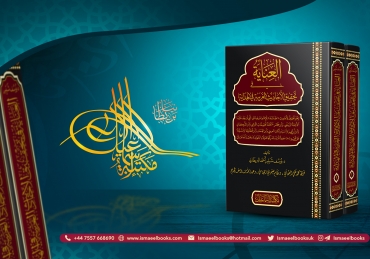Spending on the family on ʿĀshūrāʾ
Question
What is the status of the narration that suggests that a person should generously spend on the family on ʿĀshūrāʾ? Please clarify because people who do not believe in this are criticised whilst people who believe in this are accused of innovation.
Click here to read a related article.
بسم الله الرحمن الرحيم
Answer
The Prophet ﷺ is reported to have said:
من وسع على عياله يوم عاشوراء وسع الله عليه سائر سنته
“Whoever expands [his expenditure] on his family on the day of ʿĀshūrāʾ (10th Muḥarram), Allah will expand [his sustenance and mercy] on him for his entire year.”
This narration has been transmitted via five companions with these or similar words: ʿAbd Allah ibn Masʿūd (d. 32/652-3), Abū Hurayrah (d. 57/676-7), Abū Saʿīd al-Khudrī (d. 74/693-4), Jābir ibn ʿAbd Allāh (d. 78/697-8) and ʿAbd Allāḥ ibn ʿUmar (d. 73/693) (may Allah be pleased with them).[1]
The scholars have four views regarding the status of this narration:
- The narration is ṣaḥīḥ (sound) – This is the view of Ḥāfiẓ Abū al-Faḍl ibn Nāṣir (d. 550/1155),[2] Ḥāfiẓ Suyuṭī (d. 911/1505),[3] ʿAllāmah Ḥaṣkafī (d. 1088/1677)[4] and ʿAllāmah Ṭaḥṭāwī (d. 1231/1816)[5].
- The narration is ḥasan (agreeable) – This is the view of Ḥāfiẓ ʿIrāqī (d. 806/1404) who authored a treatise on this subject and concluded that the ḥadīth of Jābir (d. 78/697-8) (may Allah be pleased with him) is at least ḥasan (agreeable).[6] His analysis has been relied upon and endorsed by later scholars including: Ḥāfiẓ Sakhāwī (d. 902/1497),[7] ʿAllāmah Qasṭalānī (d. 923/1517),[8] ʿAllāmah Ibn ʿIrāq (d. 963/1555-6),[9] ʿAllāmah Ibn Ḥajar al-Makkī (d. 974/1567),[10] ʿAllāmah Ṭāhir Pattanī (d. 986/1578-9),[11] ʿAllāmah Sirāj al-Dīn ibn Nujaym (d. 1005/1596),[12] Mullā ʿAlī al-Qārī (d. 1014/1605),[13] ʿAllāmah Munāwī (d. 1031/1622),[14] ʿAllāmah Nūr al-Dīn al-Ḥalabī (d. 1044/1635),[15] Shaykh ʿAbd al-Ḥaq Muḥaddith Dehlawī (d. 1052/1642),[16] ʿAllāmah Zurqānī (d. 1122/1710-1),[17] ʿAllāmah ʿAjlūnī (d. 1162/1748),[18] ʿAllāmah Ibn ʿĀbidīn (d. 1252/1836),[19] ʿAllāmah Sharwānī (d. 1301/1884)[20] and ʿAllāmah ʿAbd al-Ḥayy Laknawī (d. 1304/1886)[21].
- The narration is weak – Our respected teacher Muḥaddith al-ʿAṣr Shaykh Muḥammad Yūnus Jownpūrī (b. 1355/1936 – ) was requested by his teacher Shaykh al-Ḥadīth al-Mujaddid Mawlānā Muḥammad Zakariyyā Kandhelwī (d. 1402/1982) to research this narration. Shaykh Muḥammad Yūnus concludes, “The truth according to me is that the narration is maʿlūl (defective) with all its chains. And the chain that ʿIrāqī claimed is in accordance with the condition of [Imam] Muslim and he was followed in this view by Sakhāwī, Suyūṭī and al-Qārī is defective. Ibn Ḥajar has explicitly mentioned it is munkar (unknown) in Lisān al-Mīzān.[22] The better chain according to me is what Bayhaqī has transmitted via Isḥāq ibn Rāhwayh through his chain from Abū Saʿīd al-Khudrī (may Allah be pleased with him). However, that is also maʿlūl (defective) due to the unidentified person [in the chain]. Thus, the highest condition of this narration is that it is weak.”[23] Mufti Muḥammad Salmān Manṣūrpūrī (b. 1386/1967) is also of the view that it is weak (Kitāb al-Nawāzil (6: 328).
Imam Bayhaqī (d. 458/1066) writes that the chains of this narration are all weak but when combined they provide some strength,[24] a view that is shared by Ḥāfiẓ Mundhirī (d. 656/1258)[25] and Qāḍī Shawkānī (d. 1250/1834)[26]. Ḥāfiẓ Ibn Ḥajar (d. 852/1449) is also of the view that the ḥadīth is not fabricated.[27] ʿAllāmah Haythamī (d. 807/1405) appears to be of the view that the narration is extremely weak.[28]
- The narration is baseless and fabricated – This is the view of Imam Aḥmad ibn Ḥanbal (d. 241/855),[29] Imam Muḥammad ibn ʿAbd Allāh ibn ʿAbd al-Ḥakam (d. 268/882),[30] ʿAllāmah ʿUqaylī (d. 322/934),[31] Ḥāfiẓ Abū al-Faḍl ibn Ṭāhir al-Maqdisī (d. 507/1113),[32] ʿAllāmah Ibn al-Jawzī (d. 597/1201),[33] Shaykh al-Islam Ibn Taymiyah (d. 728/1328),[34] Ḥāfiẓ Ibn ʿAbd al-Hādī (d. 744/1343), Ḥāfiẓ Ibn al-Qayyim (d. 751/1350),[35] ʿAllāmah Ibn (Abī) al-ʿIzz (d. 792/1390),[36] Ḥāfiẓ Ibn Rajab (d. 795/1393)[37], ʿAllāmah Majd al-Dīn al-Fīrozābādī (d. 817/1415)[38] and Mufti Rashīd Aḥmad Ludyānwī (d. 1422/2002)[39].
Thus, there is a difference of opinion among scholars regarding the status of this narration. The preferred view is that of our teacher Muḥaddith al-ʿAṣr Shaykh Muḥammad Yūnus Jownpūrī (b. 1355/1936 – ) that the narration is, at best, weak. However, it is permissible to act upon weak narrations subject to certain conditions without overemphasising it.[40] It is for this reason one should avoid regarding this or labelling this as Sunnah.
Scholars who have recommended the practice of increasing expenditure on the family on ʿĀshūrāʾ include: Ibn Ḥabīb al-Mālikī (d. 238/853),[41] ʿAllāmah Qarāfī al-Mālikī (d. 684/1285),[42] ʿAllāmah Ibn al-Ḥāj al-Mālikī (d. 737/1336),[43] ʿAllāmah Burhān ibn Mufliḥ al-Ḥanbalī (d. 884/1479),[44] ʿAllāmah Ḥaṭṭāb al-Mālikī (d. 954/1547),[45] ʿAllāmah Sirāj al-Dīn ibn Nujaym al-Ḥanafī (d. 1005/1596),[46] ʿAllāmah Munāwī al-Shāfiʿī (d. 1031/1622),[47] ʿAllāmah Bahūtī al-Ḥanbalī (d. 1051/1641),[48] ʿAllāmah Ḥaṣkafī al-Ḥanafī (d. 1088/1677),[49] ʿAllāmah Kharashī al-Mālikī (d. 1101/1690),[50] Shaykh Dardīr al-Mālikī (d. 1201/1786),[51] Imam Ṣāwī al-Mālikī (d. 1241/1825),[52] Imam Sharwānī al-Shāfiʿī (d. 1301/1884),[53] Shaykh Ashraf ʿAlī Thanawī (d. 1362/1943),[54] Mufti Kifāyat Allah Dehlawī (d. 1372/1952), Shaykh Muḥammad Zakariyyā Kāndhelwī (d. 1402/1982), Mufti Maḥmūd Ḥasan Gangohī (d. 1417/1996),[55] Mufti ʿAbd al-Raḥīm Lājpūrī (d. 1422/2001)[56] and others. There are also narrations from earlier scholars who are reported to have acted upon this narration. Examples include Muḥammad ibn al-Muntashir (n.d.), Ibrāhīm ibn Muḥammad ibn al-Muntashir (d. ca. 150/767),[57] Shuʿbah ibn al-Ḥajjāj (d. 160/777) and Sufyān ibn ʿUyaynah (d. 198/814).[58]
However, one should avoid overemphasising this practice and regarding it necessary, as mentioned by the Mālikī scholars Imam Ibn al-Ḥāj (d. 737/1336), Imam Shāṭibī (d. 790/1388), Imam Ḥaṭṭāb (d. 954/1547), Imam Kharashī (d. 1101/1690) and others. Imam Ibn al-Ḥāj states that generosity on the family, relatives, orphans, poor and increasing expenditure and charity on ʿĀshūrāʾ is recommended provided there is no takalluf (pretentiousness) and it does not become a practice that is regarded as necessary, otherwise it will be disliked.[59]
Thus, one should not criticise those who do not act upon this narration or do not believe in its authenticity. Similarly, those who believe in the validity of the narration and act upon it should not be criticised. It is necessary to maintain appropriate etiquette because both views are held by great scholars and luminaries, to whom we shall remain indebted forever.
Allah knows best
Yusuf Shabbir
9 Dhū al-Ḥijjah 1437 / 11 September 2016
Approved by: Mufti Shabbir Ahmad Sahib
Footnotes
[1] For a detailed analysis of these narrations and their sources, refer to al-Yawāqīt al-Gāliyah (1: 326), also available on the following link: Virtue of spending on one’s family on 10 Muharram (Muhaddithul Asr Shaykh Yunus Jownpuri Sahib)
[2] Al-Tawsiʿah ʿalā al-ʿIyāl (8); al-Laʾāli al-Maṣnūʿah (2: 95).
[3] Al-Laʾāli al-Maṣnūʿah (2: 95); al-Durar al-Muntatharah (p. 186).
[4] Al-Durr al-Mukhtār (2: 419).
[5] Ḥāshiyah al-Ṭaḥṭāwī ʿalā Marāqī al-Falāḥ (p. 681).
[6] Al-Tawsiʿah ʿalā al-ʿIyāl (2).
[7] Al-Maqāṣid al-Ḥasanah (p. 674).
[8] Al-Mawāhib al-Ladunniyyah (11: 280).
[9] Tanzīh al-Sharīʿah (2: 157).
[10] Ashraf al-Wasāʾil (p. 439); al-Ṣawāʿiq al-Muḥriqah (2: 536).
[11] Tadhkirah al-Mawḍūʿāt (p. 118).
[12] Al-Nahr al-Fāʾiq (2: 26).
[13] Jamʿ al-Wasāʾil (2: 106); Mirqāt al-Mafātīḥ (4: 1349); al-Asrār al-Marfūʿah (p. 360).
[14] Fayḍ al-Qadīr (6: 235).
[15] Al-Sīrah al-Ḥalabiyyah (2: 185).
[16] Sharḥ Sifr al-Saʿādah (p. 543).
[17] Sharḥ al-Zurqānī ʿalā al-Mawāhib al-Ladunniyyah (11: 280).
[18] Kashf al-Khafāʾ (2: 284).
[19] Radd al-Muḥtār (6: 430; also see 2: 418).
[20] Ḥāshiyah al-Sharwānī ʿalā Tuḥfat al-Muḥtāj (3: 455).
[21] Al-Āthār al-Marfūʿah (p. 97); Ẓafar al-Amānī (p. 423).
[22] Lisān al-Mīzān (6: 336). Ḥāfiẓ Ibn Ḥajar (d. 852/1449) has classified this narration as munkar jiddan (extremely irregular). This is significant and should be considered before authenticating the narration.
[23] Al-Yawāqīt al-Gāliyah (1: 333).
[24] Shuʿab al-Īmān (5: 333). ʿAllāmah Ibn Ḥajar al-Makkī (d. 974/1567) suggests in al-Ṣawāʿiq al-Muḥriqah (2: 536) that the statement of Imam Bayhaqī (d. 458/1066) suggests that the narration is ḥasan (agreeable) according to him.
[25] Al-Targhīb wa al-Tarhīb (2: 71).
[26] Al-Fawāʾid al-Majmūʿah (p. 98).
[27] Al-Maqāṣid al-Ḥasanah (p. 674).
[28] Majmaʿ al-Zawāʾid (3: 189).
[29] Minhāj al-Sunnah (7: 39); Laṭāʾif al-Maʿārif (p. 54); al-Manār al-Munīf (p. 111). It is worth noting that Shaykh ʿAbd al-Fattāh Abū Guddah (d. 1417/1997) has refuted those who suggest that the term “Lā Yaṣiḥḥ” (It is not ṣaḥīḥ) indicates that according to Imam Aḥmad (d. 241/855) the narration is weak. This is incorrect because this term refers to fabricated narrations when cited in books that specialise in fabricated and weak narrations. For further details, refer to Shaykh ʿAbd al-Fattāh’s footnotes of al-Manār al-Mūnīf (p. 112) and his introduction to Mullā ʿAlī al-Qārī’s al-Maṣnūʿ fī Maʿrifah al-Ḥadīth al-Mawḍūʿ (p. 27) where he has discussed this issue in detail. Our teacher Shaykh Muḥammad Yūnus Jownpūrī (b. 1355/1936 – ) adds that Shaykh al-Islām Ibn Taymiyah (d. 728/1328) has attributed the words “Lā Aṣla Lahū” (it has no basis) to Imam Aḥmad (d. 241/855). Thus, there is no doubt that according to Imam Aḥmad, this narration is fabricated. Shaykh Muḥammad Yūnus Jownpūrī also writes in the context of another narration regarding which Imam Aḥmad uses the term ‘Lā Yaṣiḥḥ’: “The qudamāʾ (earlier scholars) when they negate ṣiḥḥat, they intend buṭlān (invalid), unless if they explicitly mention its validity thereafter” (al-Yawāqīt al-Gāliyah, 4: 65).
Note: In relation to the principle mentioned by Shaykh ʿAbd al-Fattāh Abū Guddah, it does not appear to be an absolute rule, as ultimately it depends on the context, wording, source and methodology of the author. It is possible for the term “Lā Yaṣiḥḥ” to be used in reference to a particular chain or transmitter only, particularly in rijāl, ʿilal and takhrīj books (for example, see al-Ḍuʿafāʾ al-Kabīr, 2: 54, 2: 118, 2: 183, 2: 297, 2: 319, 2: 344; Aṭrāf al-Garāʾib wa al-Afrād 2: 120, ʿIlal of Daraquṭnī, 1: 213, 216, 3: 123, 12: 232) and this applies to other terms like munkar (for example, see Mīzān, 2: 47; Lisān, 3: 469) and ḍaʿīf (for example, see Dhakhīrat al-Ḥuffāẓ, 2: 644, 4: 1860, 1878, 2058, 2176). This is because a particular chain can be munkar or weak or fabricated but the matn (text) can be authentic or stronger due to another chain, a principle also alluded to by Ḥāfiẓ Suyūṭī (d. 911/1505) in al-Lāʾālī al-Maṣnūʿah (1: 108) and elaborated by Shaykh Muḥammad ʿAwwāmah (b. 1358/1940) in his annotations on Tadrīb al-Rāwī (2: 23, 357, 3: 457) (for further examples, refer to ʿIlal al-Ḥadīth, 4: 202, 5: 169, 326, al-Ḍuʿafāʾ al-Kabīr, 3: 93, 438, 4: 62; al-Majrūḥīn, 1: 294, 2: 152; al-Kāmil, 1: 498, 2: 434, 3: 182, 584, 4: 540, 6, 367, 7: 173-4, 525, 537, 548; ʿIlal of Daraquṭnī, 4: 331; Tārīkh Baghdad, 9: 113; Siyar, 16: 531). Thus, although the term “Lā Yaṣiḥḥ” generally denotes fabrication in books on fabricated and weak narrations, one should check whether it is in reference to the particular chain/source only or the matn (text) as well. In mawḍūʿāt books, it will predominantly be in reference to both when used generically. May Allah reward Mawlānā Muʿādh for informing me that towards the end of his life, Shaykh ʿAbd al-Fattāḥ also had reservations about the aforementioned stance.
[30] Laṭāʾif al-Maʿārif (p. 54).
[31] Al-Ḍuʿafāʾ al-Kabīr (3: 252).
[32] Tadhkirah al-Mawḍūʿāt (p. 97). Also see Aṭrāf Aḥādīth Kitāb al-Majrūḥīn (p. 362).
[33] Al-ʿIlal al-Mutanāhiyah (2: 62).
[34] Minhāj al-Sunnah (7: 39); Majmūʿ al-Fatāwā (25: 312).
[35] Al-Manār al-Munīf (p. 111).
[36] Al-Nahr al-Fāʾiq (2: 26); Radd al-Muḥtār (2: 418).
[37] Laṭāʾif al-Maʿārif (p. 54).
[38] Sifr al-Saʿādah (p. 144).
[39] Munkarāt Muḥarram (p. 15). It is worth noting that Mufti Rashīd Aḥmad Ludyānwī’s latest position appears to be that the narration is ḥasan ligayrih (sound due to others), although he adds that one should refrain from the practice. See Aḥsan al-Fatāwā (1: 513).
[40] See al-Iṣābah (5: 690); al-Qawl al-Badīʿ (p.195); al-Ajwibah al-Fāḍilah (p.55); al-Yawāqīt al-Gāliyah (2: 296).
[41] Mawāhib al-Jalīl (2: 403); Fayḍ al-Qadīr (6: 235).
[42] Al-Dhakhīrah (2: 529).
[43] Al-Madkhal (1: 289).
[44] Al-Mubdiʿ (3: 49).
[45] Mawāhib al-Jalīl (2: 403).
[46] Al-Nahr al-Fāʾiq (2: 26).
[47] Fayḍ al-Qadīr (6: 235).
[48] Al-Rawḍ al-Murbiʿ (p. 239); Kashshāf al-Qināʿ (2: 329).
[49] Al-Durr al-Mukhtār (2: 418).
[50] Sharḥ Mukhtaṣar Khalīl li al-Kharashī (2: 241).
[51] Al-Sharḥ al-Kabīr (1: 516).
[52] Bulghat al-Sālik (1: 691).
[53] Ḥāshiyat al-Sharwānī ʿalā Tuḥfat al-Muḥtāj (3: 455).
[54] Imdād al-Fatāwā (5: 289).
[55] Fatāwā Maḥmūdiyyah (5: 487).
[56] Fatāwā Raḥīmiyyah (2: 112).
[57] Al-Wāfī bi al-Wafayāt (6: 68).
[58] Al-Tawsiʿah ʿalā al-ʿIyāl. Also see Shuʿāb al-Imān (5: 334); Laṭāʾif al-Maʿārif (p. 54).
[59] Al-Madkhal (1: 289). Also see Mawāhib al-Jalīl (2: 403) and Sharḥ Mukhtaṣar Khalīl li al-Kharashī (2: 241). Imam Shāṭibī (d. 790/1388) writes in al-Iʿtiṣām (1: 450): “Saʿīd ibn Ḥassān said: “I was reading to Ibn Nāfiʿ, and when I passed the narration of expanding [wealth on ʿĀshūrā], he said to me: Burn it. I asked, why O Abū Muḥammad? He said: In fear of it being adopted as a Sunnah.” Imam Shāṭibī comments, “So these matters are permissible or recommended. However, they disliked practising it for fear of innovation, because adopting it as a Sunnah is through people practising it constantly and emphasising it.”







